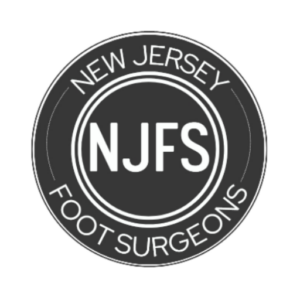Introduction
A Maisonneuve fracture is a complex ankle injury requiring expert diagnosis and surgical intervention to prevent long-term complications and restore mobility.
Key Takeaways
• Maisonneuve fractures involve a fibula fracture and ankle ligament damage, often mistaken for a severe sprain.
• High-impact sports and rotational ankle forces are common triggers.
• Pain, swelling, bruising, and difficulty walking indicate the need for immediate medical evaluation.
• Surgery stabilizes the ankle joint and prevents chronic instability.
• Full recovery takes 4-6 months, with physical therapy essential for regaining mobility.
• Strengthening exercises, proper footwear, and ankle braces can reduce risk.
For expert care, contact New Jersey Foot Surgeons at (732)-320-9173.
What Is a Maisonneuve Fracture?
A Maisonneuve fracture is a complex injury involving a spiral fracture of the fibula near the knee, coupled with damage to the ankle joint, including the syndesmosis and surrounding ligaments. This injury often occurs when a rotational force is applied to the ankle, causing the force to travel upward through the leg. Although it primarily affects athletes, it can also happen during everyday activities like slipping on wet surfaces or twisting the ankle awkwardly.
Diagnosing this fracture can be tricky since it may mimic a simple ankle sprain, but the fibula’s involvement requires specialized imaging and assessment.
What Causes a Maisonneuve Fracture?
Maisonneuve fractures typically result from high-impact injuries that involve a twisting motion. Activities such as football, rugby, and skiing are common culprits, where abrupt directional changes or falls place significant rotational stress on the leg. Even non-athletes can suffer from this injury due to slips, falls, or wearing unstable footwear like high heels. People with previous ankle injuries or weaker ligaments may be more susceptible to this type of fracture.
What Are the Symptoms?
Symptoms often mimic a severe ankle sprain but include:
• Pain in the ankle and lower leg.
• Swelling and bruising from the knee to the ankle.
• Difficulty bearing weight.
• Tenderness along the fibula. These signs indicate a need for prompt medical attention to confirm the diagnosis.
How Is It Diagnosed?
Diagnosing a Maisonneuve fracture involves a detailed clinical examination and imaging studies. X-rays are essential but must include the entire lower leg to capture the fibula fracture. In some cases, MRI scans may be needed to assess soft tissue damage, particularly injuries to the ligaments and syndesmosis. Misdiagnosis can lead to chronic instability and complications, so a thorough evaluation by a specialist is critical.
Why Is Surgery Necessary?
Surgery is often the recommended treatment for Maisonneuve fractures due to the instability they cause in the ankle joint. The primary goal of surgery is to realign and stabilize the bones and ligaments. This typically involves placing screws or other implants to hold the tibia and fibula in proper alignment while the ligaments heal. Without surgical intervention, patients risk long-term issues such as chronic pain, ankle instability, and arthritis. Surgery helps restore joint function and minimizes the risk of future complications.
What Does Surgery Involve?
The surgical procedure for a Maisonneuve fracture is multifaceted. Surgeons begin by stabilizing the syndesmosis, the joint between the tibia and fibula, using screws or a fixation device. If there is significant ligament damage, additional repairs may be required. The fibula fracture itself is usually managed with plates and screws if it is unstable or displaced.
The entire procedure aims to restore the structural integrity of the ankle and lower leg, ensuring that patients can regain full mobility after healing.
What Happens After Surgery?
Post-surgery recovery is a gradual process that involves several stages. Initially, patients wear a cast or boot to immobilize the ankle and allow the bones and ligaments to heal. Non-weight bearing is essential for the first six to eight weeks. Once the initial healing phase is complete, physical therapy begins, focusing on restoring range of motion, strengthening the ankle, and improving balance.
The timeline for full recovery varies but generally takes four to six months. Patients can gradually return to sports and high-impact activities once they achieve sufficient strength and stability.
What Are the Risks and Complications?
As with any surgical procedure, there are risks associated with Maisonneuve fracture surgery. Common risks include infection, nerve damage, and complications related to the screws or implants, such as loosening or the need for removal. Additionally, some patients may experience chronic pain or stiffness, particularly if rehabilitation is not followed diligently.
Long-term complications like post-traumatic arthritis can occur if the joint does not heal properly. Close follow-up with the surgical team and adherence to rehabilitation protocols are crucial to minimizing these risks.
How Can You Prevent a Maisonneuve Fracture?
Preventing a Maisonneuve fracture involves taking proactive measures to strengthen the ankle and improve balance. Athletes can benefit from conditioning programs that focus on ankle stability and proprioception. Wearing appropriate footwear and using braces during high-risk activities can also reduce the likelihood of injury.
For individuals with a history of ankle injuries, rehabilitation exercises, and physical therapy play a key role in preventing re-injury. Being mindful of uneven surfaces and avoiding risky movements can help minimize the chances of sustaining a Maisonneuve fracture.
When to Seek Medical Attention
Prompt medical attention is essential if you experience significant ankle pain, swelling, or an inability to bear weight following an injury. These symptoms may indicate a Maisonneuve fracture, which requires timely diagnosis and treatment to avoid complications. Early intervention improves outcomes and helps patients return to normal activities more quickly.
Contact New Jersey Foot Surgeons at (732)-320-9173 for expert evaluation and personalized treatment for Maisonneuve fractures to schedule a consultation. Our team of specialists is committed to providing the highest standard of care and helping you achieve a full recovery.


